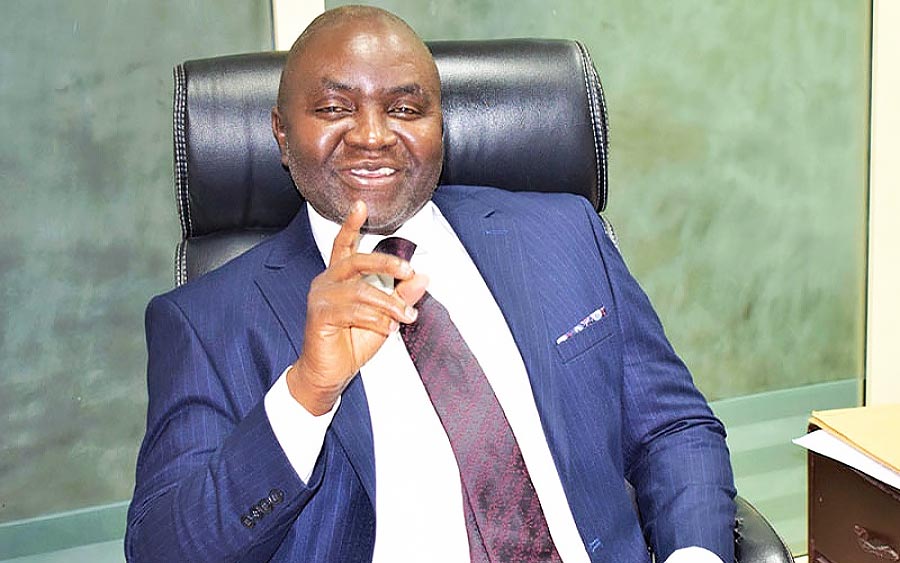Article summary
- The Centre for the Promotion of Private Enterprise (CPPE) has urged the Nigerian government to introduce palliatives to mitigate the effects of fuel subsidy removal, particularly on food and transportation costs for citizens.
- The CPPE suggests reducing import tariffs for intermediate products used by food processing companies and eliminating taxes and levies on agricultural inputs to boost food production.
- The CPPE also recommends reducing import tariffs on mass transit buses and ensuring that the pricing of Premium Motor Spirit (PMS) by the Nigerian National Petroleum Corporation (NNPC) is at least 15% lower than private fuel stations to signal social sensitivity by the government.
The Centre for the Promotion of Private Enterprise (CPPE) urged the Presidency to introduce palliatives and measures to cushion the effects of the fuel subsidy removal which would address the food and transport costs for Nigerians.
This was disclosed by Dr. Muda Yusuf, the founder of the CPPE on Thursday reacting to the Fuel subsidy removal.
The CPPE chief also noted that Nigerians spend over 50% of their income on food and transport, adding that FG should also introduce a reduction in import tariffs for intermediate products for food processing companies.
Palliative measures
Dr. Yusuf in an interview urged the Federal Government to introduce some palliatives that will reduce the effects of the fuel subsidy removal from the 2023 budget on its citizens.
He noted the government needed to come up with immediate and short-term measures that would mitigate the pains of the sharp increases in transportation and feeding costs on the citizens, citing that food and transportation account for over 50% of the household budget of the populace, noting that “something urgent needed to be done”.
Measures
The CPPE boss reacted that such measures should reduce the cost of food, provide cheaper public transportation options and improve power supply, also urging that improved power supply would help to reduce demand for fuel, electricity, generators, and incentives to promote the use of autogas, the statement added:
- “There must be a reduction in import tariffs for intermediate products for food processing companies, elimination of taxes and levies on all agricultural inputs.
- “ This will boost food production and reduce import tariffs on mass transit buses, among others.”
NNPC strategy
He also noted that the Nigerian National Petroleum Corporation Limited (NNPCL) Premium Motor Spirit (PMS) pricing should be at least 15% less than the prices of private fuel stations, which he says is necessary to signal social sensitivity by the government.
- “Admittedly, the increase is quite high and the shocks on citizens are enormous as well, but these are some of the inevitable costs of reforms and we need the reforms to prevent the collapse of the economy.
- “Apparently, things have to get worse before it gets better.
- “It would be painful, initially, but it would progressively get better.
- “As the supply side response improves, the prices will moderate.”
In case you missed it
The National Institute for Legislative and Democratic Studies (NLIDS) called on the Nigerian government to introduce palliative measures to mitigate the impact of fuel subsidy removal.
This was disclosed by Prof. Abubakar Suleiman, the Director-General, NILDS when he received a team from Michael Imodu National Institute for Labour Studies, led by the Director-General, Dr. Issa Aremu in his office in Abuja.
Prof. Suleiman stated that the removal was necessary, however, the Nigerian labour and private sector would be affected, as it is a painful decision that needs to be taken, he added:
- “In spite of the fact that it is necessary to have subsidy removed, I pity Nigerian labour who are going to be the major casualty of such necessity.
- “There is nothing anybody can do about it, there is a need to remove subsidy, with time to come, Nigerians will adjust to it, it may be very difficult, maybe a very painful decision that the government needs to make.”
Palliatives
He also urged the Presidency to come up with palliatives, to see the removal does not dampen Nigerian labour, saying:
- “We have a collective responsibility to see that the effect of the removal does not dampen the morale of the Nigerian labour, I think it is very important.
- “I want to use this opportunity to advise the new government under President Bola Tinubu to come up with a palliative to cushion the effects.”












